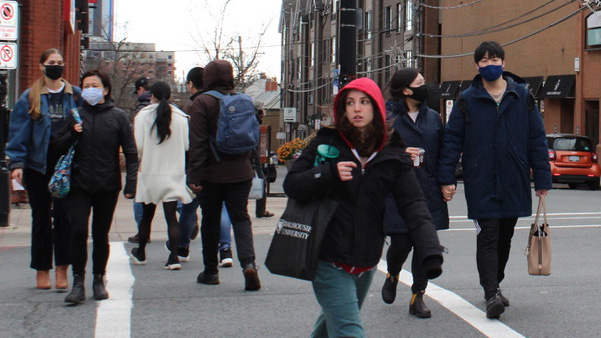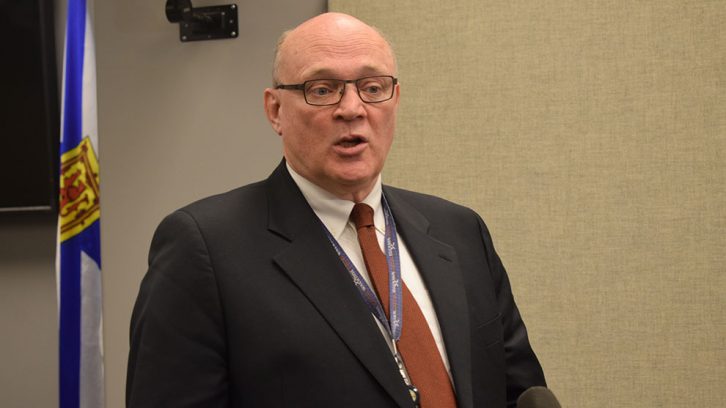Top doctor urges Nova Scotians to be ‘COVID guards’ amid community spread
New COVID cases in N.S. cannot be linked to travel

caption
The province's top doctor stressed the importance of wearing masks in publicAs COVID cases creep into Nova Scotian bars, businesses, and schools, the province’s top doctor warns we are now at the beginning of the second wave of the pandemic.
“I’m starting to think we are on a roller coaster. There are many different paths we can take, some are going to be more gentle than others depending on what choices we make,” Chief Medical Officer of Health Dr. Robert Strang said at a COVID briefing on Tuesday.

caption
Dr. Robert StrangDuring the briefing, Premier Stephen McNeil announced five new cases of the virus, all in Halifax Regional Municipality. Two are students in HRM, and three are close contacts of previously reported cases.
McNeil expressed concerns that Nova Scotians are not taking the pandemic seriously, and made it clear he will take whatever measures necessary to slow the spread of the virus.
“If community spread continues down the path, I won’t think twice before shutting down the economy again,” he said.
On Wednesday, Nova Scotia announced three new cases, with a total of 24 active cases.
Strang explained travel is not the primary cause of all current cases. There have been seven cases public health has been unable to trace back to a travel-related source.
“We have to conclude this may be from local transmission. This is very concerning and an important turn of events for us in Nova Scotia,” he said. “We have to move beyond talking about travel and individual clusters and focus on how we can keep ourselves as safe as possible in the weeks ahead.”
McNeil said the beginning of community spread is a wakeup call.
“COVID is not just entering two of our schools, it is quickly creeping into a number of our neighbourhoods.”

caption
Nova Scotia Premier Stephen McNeilIn the first half of November, 45 new cases were announced. This is compared to three new cases in September, and 21 in October.
“This is a trajectory we can’t continue to follow,” Strang said. “Each and every one of us needs to be a COVID guard.”
He explained the new cases have been primarily linked through social activity, concentrated in groups of 18-35-year-olds.
Both officials warned Nova Scotians to cut their socializing. They stressed the importance of following public health guidelines like washing hands and wearing masks, and asked that people try to keep their close physical contacts to one group of 10 people.
“We are still at a point where we can control the COVID path that we follow, but it depends on what we all do together,” Strang said. “There isn’t any one solution, but there are 960,000 solutions that rest with each and every one of us.”
He reiterated this is not the time to take trips out of the Atlantic bubble unless absolutely necessary.
McNeil issued a warning to those who are continuing to live their lives as usual and are not following public health guidelines.
“If you think COVID isn’t real, if you think COVID isn’t a risk…think again.”
New exposure location in Dartmouth
Nova Scotia Public Health also announced a new potential exposure location on Tuesday. People who were at GCR Tire and Service Center in Dartmouth on Nov. 13 between 8 and 10 a.m. are being asked to self-monitor for symptoms.
This adds to the list of 34 places that have been considered possible COVID exposure locations since Oct. 24.
Symptoms and testing
Anyone who is experiencing one of the following symptoms should complete an online self-assessment or call 811 to determine if they should be tested:
- Fever
- New or worsening cough
Anyone with two or more of the following symptoms should also be assessed:
- Sore throat
- Headache
- Shortness of breath
- Runny nose
About the author

Nicola Seguin
Nicola is from New Brunswick, currently living on unceded Mi'kmaw territory in K'jipuktuk (Halifax). She has a political science degree from...
